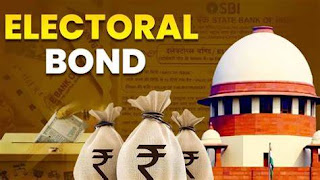The Central Pay Commission (CPC) plays a crucial role in India's administrative framework, periodically reviewing and recommending changes to the salary structure of central government employees. With the recommendations of the 7th CPC implemented for several years now, the call for constituting the 8th CPC is growing louder, driven by the need to address current economic challenges and ensure fair compensation for the workforce.
Why is the 8th CPC Important?
Addressing Inflation and Cost of Living: Inflation and the rising cost of living continually erode the real income of employees. The 8th CPC is essential to recalibrate salaries, ensuring that employees can sustain a reasonable standard of living despite economic fluctuations.
Promoting Employee Morale and Productivity: Adequate compensation is directly linked to employee morale and productivity. By reviewing and adjusting pay scales, the 8th CPC can enhance motivation and efficiency among government employees, leading to better public service delivery.
Equity and Fairness: Over time, disparities can develop between different levels of government employees. The 8th CPC can address these disparities, promoting a sense of equity and fairness within the workforce.
Adapting to Modern Needs: The nature of work and workplace dynamics have evolved significantly, especially with advancements in digital technologies and the rise of remote work. The 8th CPC can ensure that pay structures are aligned with these modern work environments.
Key Expectations from the 8th CPC
Comprehensive Pay Structure Review: A thorough review that considers the current economic scenario, cost of living, and inflation rates is necessary. This should encompass basic pay, allowances, and other benefits.
Focus on Lower and Middle-Level Employees: Prioritizing the needs of lower and middle-level employees, who are most affected by economic changes, to ensure they receive adequate compensation for a decent standard of living.
Enhanced Health and Welfare Benefits: Improving health and welfare benefits is crucial, especially in light of the recent pandemic. This could include better health insurance schemes, wellness programs, and support for work-life balance.
Technological Adaptation: Recommendations should reflect the changing technological landscape, including provisions for remote work, digital tools, and continuous professional development.
Transparency and Stakeholder Engagement: A transparent process involving consultations with various stakeholders, including employee unions, to ensure fair and comprehensive recommendations that address the workforce's real concerns.
The constitution of the 8th Central Pay Commission is not merely a procedural necessity but a vital step towards ensuring justice, equity, and motivation within the central government workforce. As the backbone of the nation’s administration, these employees deserve a pay structure that reflects their contributions and meets their needs. Timely establishment and fair recommendations from the 8th CPC will play a crucial role in maintaining the efficiency and morale of central government employees, ultimately contributing to the nation’s progress.




